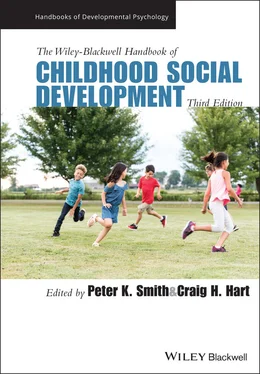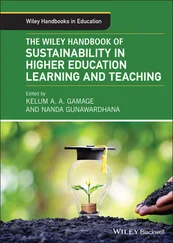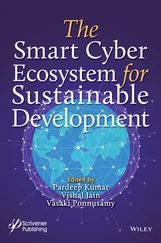Global social changes in general, and the transformation of the public domain into a quasi‐market in particular, have permeated and reshaped child socialization processes by scaling them down to the level of interpersonal interactions with the primary caregiver, mainly mothers (Rose & Abi‐Rached, 2013). As the “social” is being considerably diminished, its agents such as family, parents, and schools have been dismantled and reconstructed in accordance with market values and orientations. Socialization has become a process of acquisition of structures, behaviors and tastes, and cognition, language, and emotions within the family, with parent–child interactions playing a lead role in consolidating this process. It is thus fitting to view socialization through family policy changes and the politicization of parenting and ethics of care; the creation of partnerships and new forms of relating to schools and teachers; the shrinking of families’ public and social spaces, and children’s sense of place, as well as through social‐class lenses.
The Politicization of Parenting and Child Socialization
The neoliberal influence on family as a civic institution is seen in UK social policy engulfed by discourses of individual freedom, choice, and entrepreneurship, encouraging parents to approach child rearing and socialization as a project that aligns with the market irrespective of the social structures of their life. The rise of commodification and competitiveness across the social realm has propelled new understandings about families and the role of parents in socializing their children. Parents are increasingly expected to resolve what would otherwise be conceived as structural problems through “a double movement of autonomisation and responsibilisation” (Rose, 1999, p. 476). Parents are seen at once as autonomous in terms of being able to carve a destiny for themselves, regardless of the constraints of their life, but also responsible for their children’s destiny and life chances.
The individualization of social problems underpins the politicization of parenting, which relies on an assumed causal relationship between parenting, child socialization, and future outcomes with good parenting being key to upward social mobility (Gillies, 2008). Socialization as a political duty to enhance children’s future prospects has gained traction in family policy in the United Kingdom (Brown et al., 2015). Children are seen as future investment, perpetually accruing capital through self‐improvement, and parents are encouraged to make the “right” choices. As Wyness (2020) argues, creating the responsible parent becomes a matter of engineering the right attitudes and aptitudes, a sense of empowerment that aligns with the “aspirations of free citizens” (Rose, 1999, p. 49). This has implications for how parents relate to their children and transmit these attitudes and aspirations through socialization. In this context parenting and child socialization are transformed from a web of experiences and relationships to an act of competence, individual responsibility, and public accountability (Gillies, 2008).
Intensive Parenting and the Making of the “Responsible” Parent
Over the last two decades, family policy in the United Kingdom and other countries in the global north (e.g., United States, Canada, France) has taken a psychosocial, interventionist turn whereby parents and children’s social experiences are to follow predetermined paths calculated along how intensely parents care for their children, the quality of the emotional bonds and attachments they form, how often they engage with learning and other enrichment activities, and the support they offer for the development of language and social skills. Increasingly, child socialization is constrained within the private sphere of the family, within interpersonal relationships between parents and children that are managed through early intervention and risk‐reduction programs, especially designed for the “troubled” families. In this context, socialization has become a vehicle for social policy intervention, adopting an instrumental focus that alters the values that underpin socialization such as mutual obligation and ethics of care, with inequality being understood as a manifestation of bad parenting.
These shifts mean that a key focus in child socialization is to prepare children to function and capitalize in postindustrial economic contexts. Child socialization is rationalized in ways that promote new forms of self‐governance assisted by the tools of the “responsible” parent and family risk management through early intervention. Children and young people, especially those in poverty, are seen as either vulnerable or dangerous, with risk being directed at them or them posing risks to others; they are not seen as active agents but in need for remodeling. Parents are encouraged to approach child rearing and socialization as a cost/benefit exercise, a process of maximizing future investment to ensure their children function effectively as economic subjects. As such the focus of family policy in postindustrial societies is more on parents’ and children’s behavior, lifestyle, values, and beliefs and less on structural inequality, disadvantage, and social justice, considering “individual characteristics and dispositions as pathways to the social advancement” (Hartas, 2014, p. 5). We witness what Rose coined as “etho‐politics” which is about harnessing character as a tool for social and political transformation through calculating efficiencies and socializing children as resources and future investment outcomes. Etho‐politics exert a significant impact on child socialization through the micromanagement of family intimate life (e.g., how many fruits per day children eat; how often parents read to their children and play with them; whether they experience attachment problems) to ensure that their behavior, character, and values align to the market. Ultimately, “objectification and instrumentalization” reshape the family’s social and emotional dynamics and the parents interactions with children.
Intensive parenting in the global north has changed child socialization patterns in that some parents are expected to expend time and energy and follow family experts’ advice on how to raise and socialize their children. A growing number of studies and social commentators have questioned the benefits of intensive parenting (Marano, 2004; Sandel, 2004) in terms of whether it is conducive to supporting children to develop agency and a healthy self‐esteem (one that emanates from accomplishment), social skills tested through peer interactions, and emotional resilience. Children in families who exercise intensive parenting have been observed to be trained “in the rule of the game” in how they and their parents interact with schools and professionals. Children tend to socialize with peers unsupervised by adults less often and feel confident to shift interactions to “suit their preferences,” finding it difficult to self‐organize and decide what activities to engage in without adult structure and monitoring, requiring attention from adults and being less keen on “hanging out with adults in a non‐obtrusive, subordinate fashion” (Lareau, 2003, p. 6).
Parents are held responsible for creating “rich” early years environments by pursuing early‐learning strategies, accessing enrichment activities and expressing high educational aspirations to reduce the achievement gap (Hartas, 2011, 2012). This is likely to instrumentalize the expression of love and care for children with parents being held responsible for “attachment issues,” for not talking to their children enough to increase their vocabularies, or not maintaining eye contact and engaging in play‐based learning with their children (Macvarish, 2014). Intensive parenting undermines child development and socialization because it places children under scrutiny resulting in them becoming more self‐conscious and less likely to engage in trial and error during educational and social exchanges. As such, children become less likely to experiment and learn from failure and figure out things for themselves; instead they are encouraged to live their life as a project of continuous self‐improvement. In contrast, children in families that practice less intensive parenting spend more time in activities they initiate and interacting with peers and family members, having opportunities to develop empathy (Lareau, 2003).
Читать дальше












